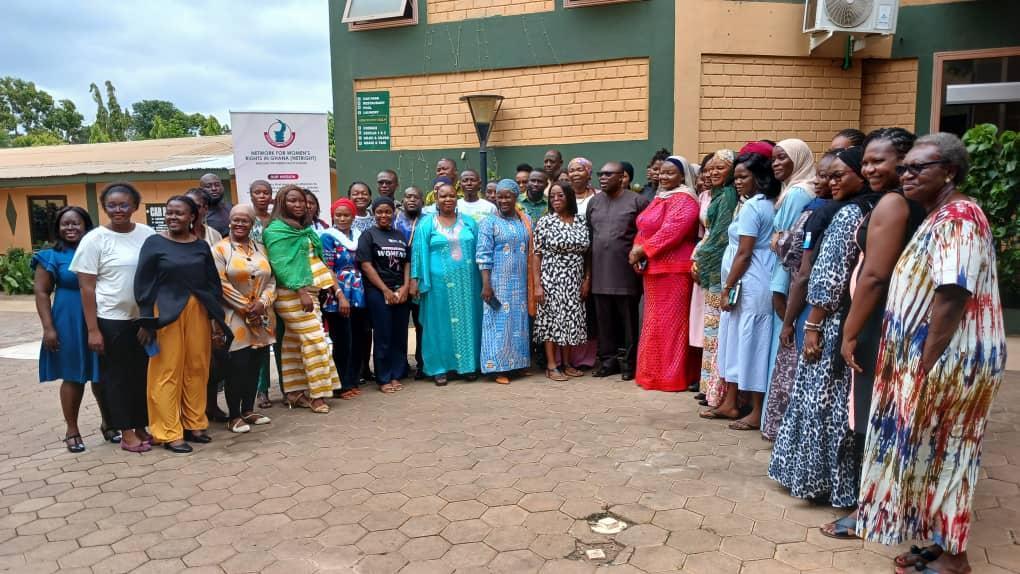Africa-Press – Ghana. The Network for Women’s Rights in Ghana (NETRIGHT) has held a two-day training workshop to raise awareness and build the capacity of women rights organizations on issues of unpaid care work and time poverty.
The workshop, held in partnership with Alinea International, formed part of the United for Care-Sensitive Approaches to Rights and Empowerment (UCARE) project, which is funded by Global Affairs Canada.
The UCARE is a five-year initiative being implemented in 10 districts across the Northern, North East, and Savannah Regions, along with national-level advocacy to mobilize support for care-sensitive policy reforms.
Held under the theme: “Unpaid, Underprivileged: Time Poverty and Gender Roles”, the workshop was to draw attention to the disproportionate burden of unpaid care work borne by women and girls and how it restricted their participation in economic, political, and social life.
It brought together representatives from women’s rights organisations, who are expected to leverage on the training to shape programming and influence policy advocacy in their communities.
Madam Patricia Blankson Akakpo, Executive Director of NETRIGHT, speaking during the training in Tamale, said the project responded to global and regional calls including the United Nations Beijing Platform for Action and the Economic Commission for Africa’s recommendations to make women’s unpaid care work visible through data, time-use surveys, and appropriate policy mechanisms.
She said: “By placing unpaid care work at the centre of gender-responsive macroeconomic policymaking, UCARE aims to influence policies that recognise unpaid care work, reduce the burden of care on women and girls, and promote equitable redistribution of care responsibilities to enhance their social and economic empowerment.”
She explained that while unpaid care work sustained households and economies, it remained largely unrecognized in macroeconomic policymaking due to entrenched gender stereotypes and narrow economic measurements that focused mainly on market activities.
Madam Akakpo emphasised that unless deliberate actions were taken, women would continue to experience “time poverty”, a situation where caregiving demands deprived them of opportunities to pursue paid work, education, or leadership roles.
She urged participating organisations to advocate for policies that recognized, reduced,
and redistributed unpaid care work in both public and private spheres.
Dr Faustina Obeng Adomaa, a researcher and facilitator, took participants through various topics including the concepts and policy landscape of unpaid care work, the gendered division of labour, the unpaid care economy and development as well as policy gaps and opportunities for care-sensitive reforms.
She cited a 2023 report by the World Economic Forum, which indicated that women globally performed about 76 per cent of unpaid care work describing it as a major contributor to gender inequality.
Dr Adomaa emphasised need for gender-responsive policies that valued care work and provided essential services and infrastructure to reduce the caregiving burden on women and girls.
Mrs Sahara Tanko, a Budget Analyst at the Kumbungu District Assembly, took participants through Ghana’s local governance structures including the composite budgeting process, district planning coordinating units, and the Medium-Term Development Plan.
She said unpaid care work often resulted in school dropout among girls, limited women’s empowerment and participation in community development.
She called for the provision of incentives and support systems to help keep girls in schools, especially those in rural and underprivileged communities.
Hajia Lamnatu Adam, Executive Director of Songtaba recommended the adoption of time-use diaries and community-led time-tracking mechanisms to improve understanding of unpaid care work and its impact on community and national development.
For More News And Analysis About Ghana Follow Africa-Press







